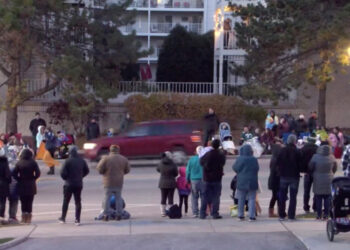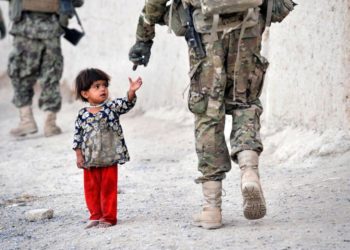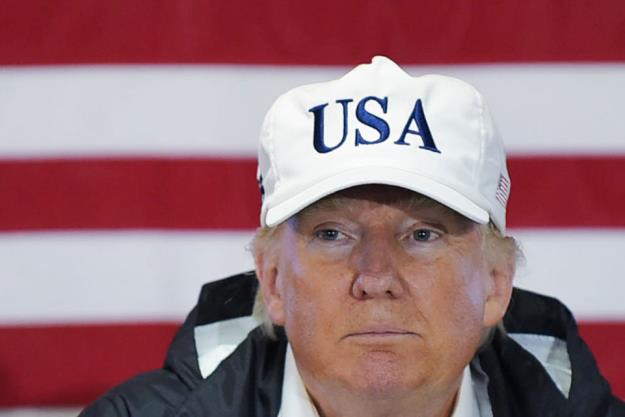According to the National Oceanic and Atmospheric Administration (NOAA), 2018 is on pace to be the fourth hottest year on record, surpassed only by 2015, 2016 and 2017. As the largest wildfire in California’s history continues to burn, scientists say there’s a clear link between climate change and more intense fires. Storms like hurricanes are also expected to grow stronger and to be more destructive as temperatures continue to rise.
As natural disasters intensify, the potential for them to inflict mass-casualties becomes greater. Mass traumas associated with disasters can have broader effects on society as a whole. In this sense, the impact of natural disasters is comparable to that of large-scale terror attacks. Although the U.S. has not suffered a terrorist attack with over 100 casualties since 9/11, the threat of another large-scale attack continues to loom.
So, how prepared is the U.S. to deal with future disasters?
The Globe Post asked Dr. Irwin Redlener, a clinical professor of Health Policy and Management and Pediatrics at Columbia University. He is the founder and director of Columbia’s National Center for Disaster Preparedness and is widely considered a leading expert on the public health ramifications of terrorism and large-scale catastrophic events.
In 2006, Redlener published “Americans at Risk: Why We Are Not Prepared for Megadisasters and What We Can Do.” He found a country that was seriously unprepared to handle a major terrorist attack or natural disaster despite unprecedented efforts to do so following 9/11 and Hurricane Katrina.
In this two-part interview, Redlener examines where the U.S. stands today regarding disaster preparedness, taking new factors into account such as up-to-date climate science, the threat of cyber warfare and the election of Donald Trump.
Part II. Read Part I here.
Q: Since 2006, there’s been an abundance of new scientific literature showing that climate change will result in more intense storms and natural disasters. There seems to be a consensus that we’re already seeing the early results of worsening natural disasters as temperatures and sea levels rise. The wildfires that are currently raging in California are apparently one example of this effect. Is this something you considered during the time you were working on your book? And how significant of a factor do you think climate change is as we continue to prepare for future disasters.
Redlener: Well, we have some incredibly serious issues to deal with around climate change that were evident back in 2006 but not anywhere near the degree to which they are today. If I was re-writing this book, there would be a significant focus on climate change, because what we’re looking at now are effects that we may have been thinking about in 2006 but are now issues that are front and center.
That said, we have to be careful that we are making evidence-based assertions and scientists have endeavored to do just that. Cycles of drought are a natural course phenomenon. That’s true. But there is good evidence that these cycles, in terms of frequency and intensity are more extreme because of human influence on climate change and global warming.
There’s no question that sea levels are rising. We’re looking at places like Florida. I believe – as do many experts – that 40 or 50 years from now Miami may be inundated and unlivable. It’s almost certain that many more coastal cities are in serious jeopardy. And the polar ice caps are melting, exacerbating sea level rise which is contributing to the threats that already are very serious.
You know, after Hurricane Katrina struck the Gulf, I got in a fair amount of trouble for suggesting that rebuilding New Orleans was not a great idea. I suggested that we should just move that city – the future does not look good.
New Orleans is threatened by rising sea levels, very rapid coastal erosion and the phenomenon of a settling land mass under New Orleans. This is called subsidence. Then we put up a levee that is only able to withstand a category three hurricane. It doesn’t make sense. So, yes, I think we’re in trouble from climate change and that would be a major concern when – or if – I write a sequel to my book.
Then the other concern is cybersecurity. Cyber threats, which weren’t really much on the radar at that point, certainly are now. Our entire electrical grid systems, all communications systems are extremely vulnerable.
Q: After Hurricane Maria hit Puerto Rico in September of 2017, we got to see a sort of case study in America’s response to that disaster. The response from the federal government to that particular hurricane has been widely criticized. What were your main takeaways from how the U.S. responded to Maria? And are there any broader lessons to be learned from that incident?
Redlener: So, I’ve been there four times since the hurricane made landfall. I have worked with the government to a certain extent on most of the federal assets deployed to the Island. And I’m working on the distribution of relief and recovery funds raised by Somos Una Voz, a new organization established by the Latin pop star, Marc Anthony, to help with response to and recovery from Hurricane Maria.
I thought the federal government’s response was okay on some levels. We had rapid deployment of professionals from Health and Human Services and FEMA. But the overarching reality is that the response from U.S. government, meaning the White House and Congress was entirely inadequate.
There were, indeed, many grave concerns.
For example, the U.S. military should have been deployed in force immediately – and that didn’t happen. Electricity was down, communication systems were down, the roads were a mess. We couldn’t even get to survivors to be able to help people. Weeks after landfall, a state-of-the-art military hospital ship finally arrived with some 200 surgical and ICU beds and a large contingent of medical staff. But the ship arrived too late and was totally underutilized.
I don’t really know why we were so lame in the response. The federal government blames Puerto Rico for not “properly” requesting more assets from the government. I’m not sure that is true, but that’s what the feds asserted.
And then there was the president who got into a major war of words with the mayor of San Juan. That was ugly and highly corrosive to the confidence that suffering Puerto Ricans – all of whom are American citizens, of course – had in the U.S. government.
And it’s hard to forget that when President Trump did visit the Island, the enduring image that emerged was of him throwing rolls of paper towels like footballs into the crowd. That horrible symbolic gesture mattered.
Q: Shifting gears a bit from natural disaster to the threat of terrorism, you had written that the U.S. citizenry is generally disengaged and uninformed on a lot of issues. Since 2006, I think we’ve seen a rise in political polarization and divisiveness in this country. In the event of another outside attack on the U.S., do you think that polarization and divisiveness exacerbate our lack of preparedness for a situation like that?
Redlener: That’s a very interesting question. Let’s just imagine that there was another major terrorist attack now. The current political environment is hyper-toxic and divided by ideology. It’s unprecedented in my lifetime. So, I’m not sure what would happen. We have a president who doesn’t trust and even mocks his own intelligence services. So, I would fear that it would be very difficult to deal with a serious act of terrorism.
I foresee the potential of an extraordinary amount of disorganization and disinformation. If the president doesn’t trust his own intelligence agencies, which are world class, I don’t know what would happen if something slipped through the cracks and we ended up with another 9/11 type scenario.
I would worry about all of this, because I am not sure we would or could rally around the president and the government generally right now. This is not like, you know, “a crisis happens and we all band together.” I think we’re beyond that. Besides not believing the intelligence community, the president has demonized the media to the extent that I worry that people wouldn’t even believe what’s reported.
Q: On a similar note, civil liberties groups have expressed concern over the years that after major terrorist attacks and disasters, there seems to be a trend of the executive consolidating and expanding power to the detriment of civil liberties and constitutional rights, in their view. They point to examples like the Patriot Act and the National Defense Authorization Act that were passed after 9/11 and some of the war powers that were taken over by the executive. Are those sorts of responses problematic in your view? And are we at risk of seeing further power grabs from the president and the executive branch going forward in the event of future attacks?
Redlener: You’ve now totally unsettled me! Again, it’s not something I’ve really contemplated, but I don’t think any of the scenarios you raised are out of the question. This president and his inner circle might relish the opportunity to rationalize draconian measures that would fundamentally change much about our country by establishing some kind of “emergency” authoritarian order.
I think we have to be talking about all of this right now and be prepared to prevent and manage those possibilities. That said, I imagine that there are, in fact, conversations in government and in the military focused on how we can prevent things from getting really out of control. At least I hope that’s the case.
Irwin Redlener: US Remains Ill-prepared for Terror Attacks, Natural Disasters [Part I]





















